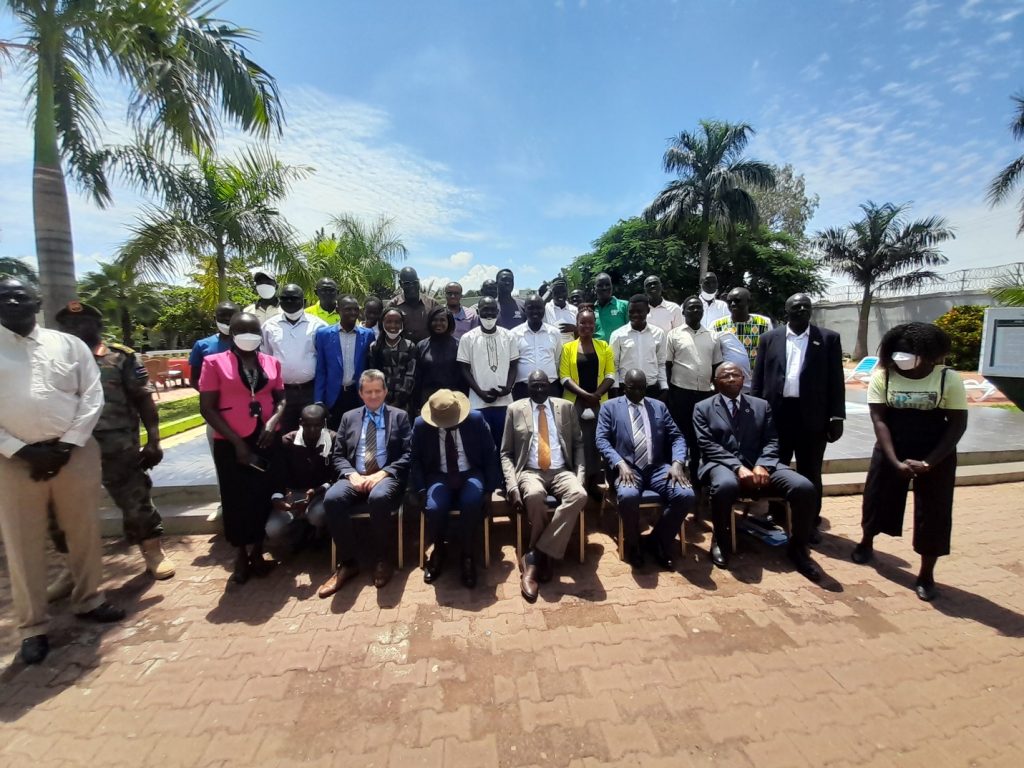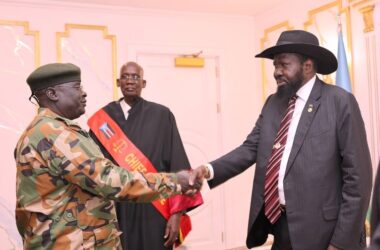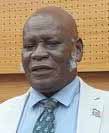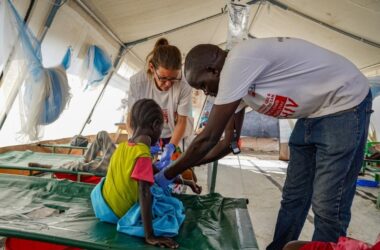
By Taban Henry
The National Minister for Information, Communication and Postal Services demands the Country’s Child Act law should agree with South Sudanese norms.
This came during a 3-day training for Media Personnel in Protecting and Promoting the Rights of Children in South Sudan with a particular focus on the six grave child rights violations committed against children in situations of armed conflict.
Children occupy a special category in all societies as they rely on adults to survive, thrive and develop.
In accordance with the Convention on the Rights of the Child, government is the primary duty bearer responsible for attainment of children’s rights. It is incumbent upon governments to establish systems to ensure justice and access to basic social services for the children.
In 2020, the government also signed the Comprehensive Action Plan to end all six grave violations committed against children in situations of armed conflict and we have witnessed a lot of progress in its implementation.
Minister Makuei said they are pleased that a South Sudanese government delegation was at the Committee on the Rights of the Child in Geneva last week to report on progress.
Speaking during the opening of the workshop, the Information Minister said “The way we behave and treat our children or our child act must be South Sudanese oriented.”
According Minister Makuei, South Sudanese have their own cultures and norms that have to do with children of which some of them are bad which have to be eliminated and some of them are good to the sense that they must encourage and tell the world that this is what they have.
“It is only this war that has interrupted our social fabric but in the past we never had children in the street, we don’t call them street children but rather children in the street because they are in the street but we need to put them in the right way,” he underlined.
“We never have those types of children because we have norms in all our various communities that everybody is due to bound to own as parents. What happens if the child loses both parents the uncles take the responsibility being paternal or maternal and if all these people are not there, it’s the duty of the chief to take care of the child,” he added.
Makuei stated that in the past some of the children were brought up by the chiefs and they become responsible.
“Why don’t we go back to our old systems so that we avoid this way of doing things,” he questioned. Emphasizing that in his childhood responsibility is assigned by age and this does not amount to child abuse.
“When I am a child and I came from the cattle background we started with caring after goats when I was a child and then after going after the goats you go to calves until when you are grown up you are initiated and there after you take care of the cattle that is the training so you are actually prepared for future leadership in the family,” he cited.
Makuei argued that in today’s world when you tell a child to go and do something they call it child abuse adding that they are not against the child protection.
The Information Minister said “during the war, the first time people who are rebels signed a document with UN for the Protection of Children and we signed it when we were still in the armed struggle and we started cleaning the army from child soldiers as I talk now we have no child soldiers.”
“The red army that were taken were not taken for anything rather than to be educated and they were taken to America grouped as minor and some of them graduated and they are working with us here as PhD holders,” he noted.
Meanwhile Jesper Moller the deputy Country Representative of UNICEF commended the government of South Sudan for the important steps taken so far to protect children citing that the Country has ratified the Convention on the Rights of the Child in 2015 and it has enacted a Children’s Act in 2008.
“The government of South Sudan signed the Safe Schools Declaration in 2015. This declaration is a commitment to ensure that learning spaces are protected from conflict. However, there continues to be reports of school occupation and vandalizing by armed forces and groups,” he said.
“We encourage the media to identify such issues and support efforts to report on such instances, thereby reinforcing government obligations and commitments to the protection of children,” he added.
Moller reassured the government of South Sudan of UNICEF continued support to eliminate grave child rights violations in South Sudan.
“We note the encouraging decrease in violations since the signing of the 2018 peace agreement. UNICEF appreciates the long and fruitful collaboration with UNMISS on the agenda to protect children from violence and abuse,” she underscored.
“Now, more than ever, the government needs to invest on its children and youth to provide them with a pathway out of armed conflict. Children and adolescents need to live their lives within the protective environments of families, communities and schools. We must work together to build a protective environment so every child can enjoy their childhood and reach their potential free of the damaging and intergenerational impacts of conflict,” he said.



